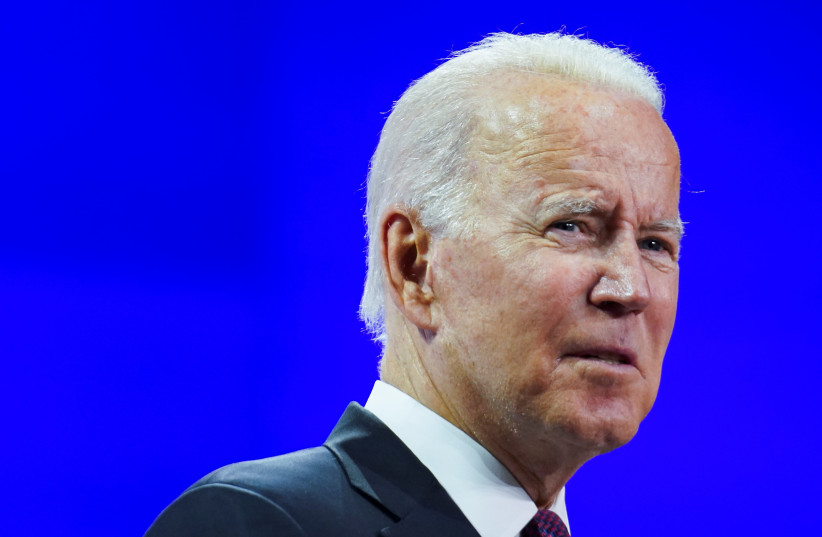US officials have requested that Israel refrain from carrying out more attacks on Iranian nuclear facilities as negotiations in Vienna are due to start on November 29, The New York Times reported on Monday.
In addition, American officials have told their Israeli counterparts that it will be impossible to use cyber weapons to slow down the Islamic Republic’s nuclear program, as the US and Israel reportedly did in a joint operation in 2009-2010 using the Stuxnet computer virus.
The report added that Israeli officials rejected the request and staunchly maintained Jerusalem’s right to act against Tehran, if necessary.
According to the report, “American officials have warned their Israeli counterparts that the repeated attacks on Iranian nuclear facilities may be tactically satisfying, but they are ultimately counterproductive,” according to several officials familiar with the behind-the-scenes discussions.
Israeli officials have said they have no intention of letting up, waving away warnings that they may only be encouraging a sped-up rebuilding of the program – one of many areas in which the United States and Israel disagree on the benefits of using diplomacy rather than force.

Biden administration officials and some IAEA officials referred to in the report claimed that Iran is ahead of where it would have been with its nuclear program had Israel not allegedly attacked three Iranian nuclear facilities since July 2020.
In contrast, some Israeli intelligence officials and some nuclear experts say that Jerusalem succeeded in slowing down Iran’s advancement, even if Tehran managed to continue to move forward.
Likewise, Israel has pulled off an impressive series of cyberattacks on Iran recently, such that it may brush aside the idea that cyberattacks are off the table.
Still, once negotiations start, or if any deal is reached, Israel has in the past shown that it is willing to exercise greater restraint.
Opposition leader Benjamin Netanyahu reacted to the article by criticizing how Prime Minister Naftali Bennett’s government is handling Iran, and accused Bennett of weakness and appeasement.
“The hands of Israel are tied by the US on Iran, and Iran can continue developing nuclear weapons, and we didn’t need The New York Times to tell us that,” Netanyahu told his Likud faction.
Also on Monday night, IAEA Director-General Rafael Grossi flew to Tehran to hold critical meetings leading into next week’s negotiations.
Before his flight, Grossi tweeted, “I’m traveling to Tehran today for meetings with Iranian officials to address outstanding questions in #Iran. I hope to establish a fruitful and cooperative channel of direct dialogue so the @IAEAorg can resume essential verification activities in the country.”
Grossi is due to meet with Iranian Foreign Minister Hossein Amirabdollahian, and the country’s nuclear program chief Mohammad Eslami.
Grossi’s message and mission is focused on getting renewed access to nuclear sites like Karaj, where the IAEA has been blind in terms of monitoring since at least June.
He is also focused on getting access to recorded data from monitoring cameras which Iran has been holding onto as a bargaining chip since February as well as getting answers about undeclared nuclear sites – an issue which the Islamic Republic has been stonewalling on since 2018.
Iran’s Mehr’s news site reported that Iranian Foreign Ministry Spokesman Saeed Khatibzadeh said on Monday, “Tonight, IAEA Director-General Rafael Grossi will travel to Tehran. Iran-Agency relations have always tried to be technical and within the framework of safeguards and procedures of the Agency. We hope this trip will be as constructive as before.
“Iran has always urged the Agency not to avoid political behavior in technical issues,” he said. “The Agency is well aware that all the acts of sabotage committed by the Zionist regime in Iran, which have been accompanied by the silence of some countries, have had a significant impact on some technical aspects.”
Just last week, Grossi said there was an “astonishing” lack of contact between Iran’s new government and the IAEA.
“They [Iran] continue to say that they are seeing me soon, but it’s not done yet and until that is done, we will have some doubts,” Grossi told reporters.
Shortly after, the Islamic Republic announced the actual date Grossi would visit.
Previously, Gross had visited in mid-September thinking he had resolved the disputes between his agency and Tehran, only to find that within days the Islamic Republic reneged on critical aspects of their understandings.
Gil Hoffman contributed to this report.
